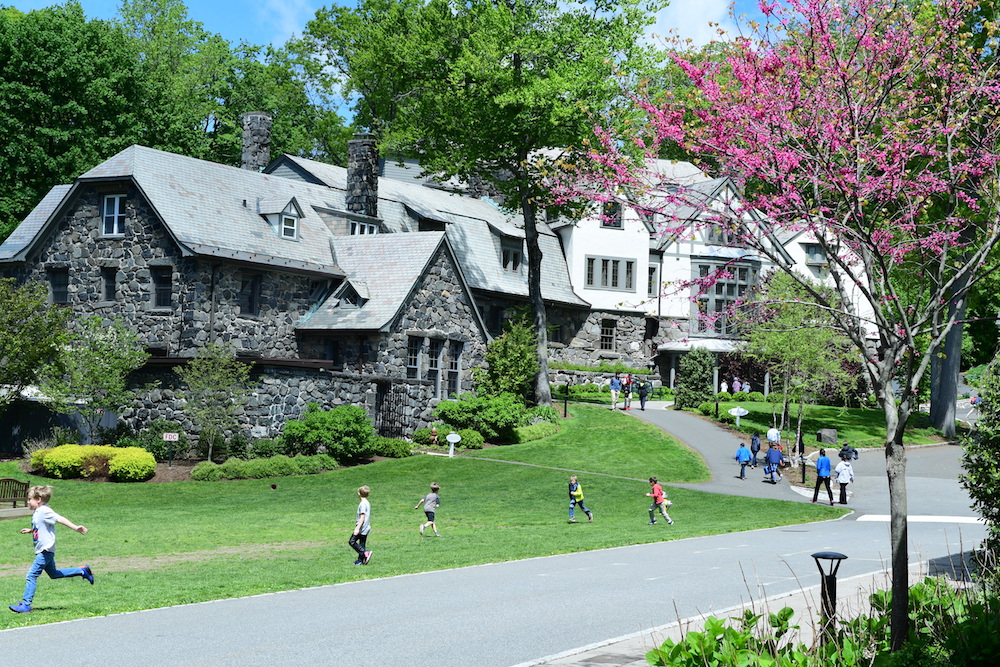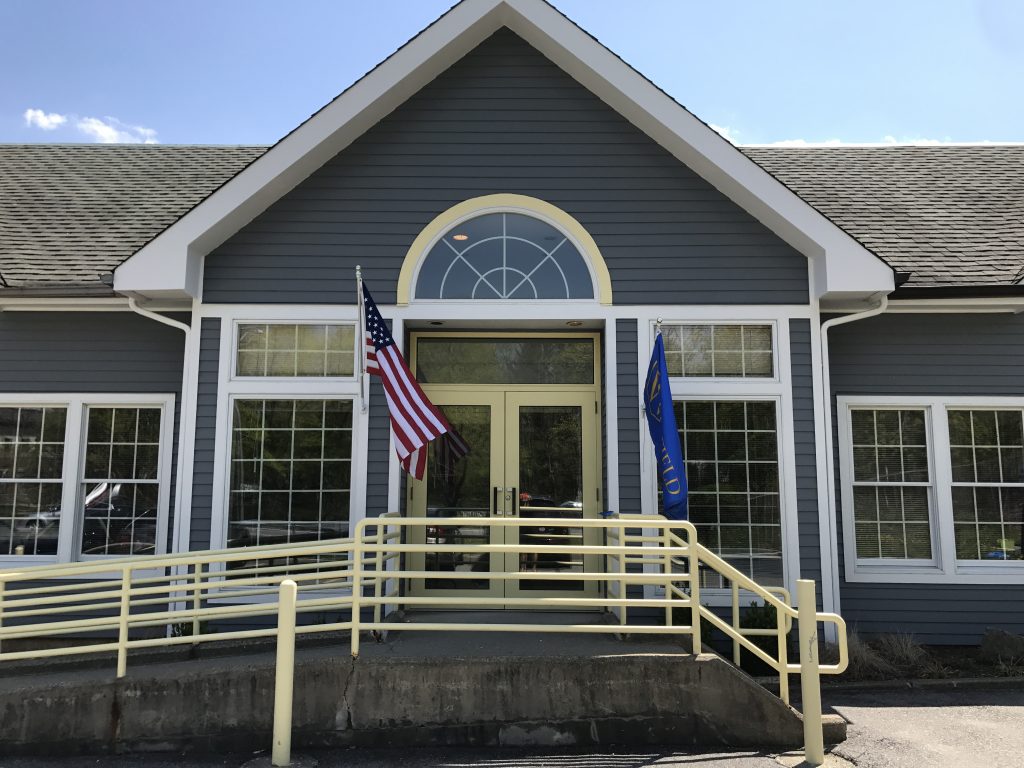

A private or independent special education school is a school that specializes in teaching students with specific learning issues and challenges. Every school is different and the mission of each special education school will be different as they will all focus on a particular type of learner or challenge. There are no one-size-fits-all, so it is important to find the school that fits your child’s needs.
Special education schools primarily serve specific student groups such as those that may have learning difficulties (or ADHD/ADD), be hard of hearing, deaf, speech impaired, health impaired, orthopedically impaired, seriously emotionally disturbed, or visually impaired. Some schools may be designed to serve students with intellectual disabilities, while others may be designed to serve students with behavioral difficulties. Some schools may be appropriate for a student with elopement issues, while others – because of their proximity to major roads, water hazards, or other issues – may not.
A private or independent school is a school that is supported by private individuals or a private organization and not by the government. Generally a school that is private or independent does not accept any funding from local, state, or federal government sources on a direct basis for the operation of the school. An independent school can be structured as a nonprofit organization or as a for-profit enterprise. The differences between the two structures can extend beyond the funding stream and have an impact on mission, goals, and decisions that affect the entire school community.
Some private/independent schools are established as not-for-profit organizations (nonprofit), or 501(c)3 organizations. Nonprofit organizations are dedicated to specific missions that advance a particular social cause and they are tax-exempt, or charitable, meaning they do not pay income taxes. Independent schools that are established as nonprofit organizations rely on tuition as well as donations to fund operations and improvements to the school. Other private/independent schools are established as for-profit entities, which means they provide education to students according to a profit-and-loss model.
Unfortunately for parents who are time-strapped and beset by stressors on all sides, there’s a lot of research that goes into this search. Generally speaking, there is no “grand list” of special education school options for you to consult. There’s a lot of word of mouth, internet searches, and Facebook queries. If outplacement is an option in your dialogue with the IEP team and the school district, the school district will likely give you a couple of names for schools that they believe might be appropriate for your child. Those schools will generally be state-approved private special education programs. Start with those names and then look on the list of approved private special education programs (APSEP) that the Connecticut State Department of Education (CSDE) maintains.
An approved private special education program (APSEP) is a private program that provides special education and related services to children. Although it is not a public agency, the approved private special education program must meet standards and guidelines set by the State Board of Education. For a directory of Connecticut Approved Special Education Programs, click here.
This seems pretty obvious but a non-state approved special education school provides special education and related services to children, but has not gone through the state process to be added to the approved schools and programs list. Schools may not be state-approved special education schools for several reasons: some may serve students who are not special education, some may not have applied for approval, some may not have some of the elements required for state approval (number of special education certified teachers, etc.), and some may choose not to seek and go through the process of special education state approval. Because a school is not state approved is not an indication of the school’s ability to serve students with a specific learning style. Neither does the stamp of state approval mean that a state-approved special education school is the best school for your child.
Special education schools can be found through friends, family, Facebook groups, social media, and Internet searches. Some states have a private association of special education schools which can provide parents with a helpful list and contact information. However, no matter where you found the school or who recommended it to you, it is vitally important to research the school thoroughly, including a visit to the school with and without your child (if appropriate), and meetings with the school administrators who will be directing your child’s educational plan.
Trust your instincts. No one knows your child the way you do. Ultimately, one of the most important things that you can do as a parent to determine whether a school is the right fit for your child is to visit. Visit the school, especially when the school is in session so you can get a sense of the student body and assess whether you think that your child would mesh well with them. Ask the teachers and administrators about their program, the other students your child would be studying with, the afterschool program, social life, and the school community. If you get the opportunity to interact with the students or visit a classroom, observe the interactions between teachers and students, and students and their peers. How large are individual classes? Almost every school talks about a student-teacher ratio but in practice the reality could be quite different.
Ask about the feedback loop – how does the school communicate with students? Is it a formal communication, like a weekly email or phone call, or less formal and on an adhoc basis, or some combination of the two? I’ve seen schools that send an email every day on every subject and I’ve seen schools that send a weekly summary with reports from each teacher on academic subjects and then an overview from the advisor. And then I’ve seen schools that are more informal and have no official feedback loop, not even a parent-teacher conference. Think about what level of communication and feedback is important to you and what is appropriate for your child at this particular point in his or her development.
Discuss sports teams if those are important to your child – sometimes special education schools do not have competitive sports teams or only have them for one or two sports. The same is true for “specials” like music, arts, and drama. It’s not that these subjects aren’t important, but there are only so many hours in the day, and most special education schools are providing support and scaffolding for their students and aren’t able to offer a full range of specials programming like you might be familiar with from your district school. The study of foreign languages is also an area that often isn’t covered by a school with a special education focus. This makes sense – if a student has language-based learning differences or challenges, adding the study of a foreign language might not make sense in the context of overcoming issues related to dyslexia.
Other questions that might make sense for a parent to ask during this process include: How will our family and my student become part of the school community? How will my child interact with his or her peers and develop and sustain friendships? Does your school facilitate social opportunities for students? How does your school provide feedback about academic, social, and behavioral goals with parents? How will your school would implement the individualized education plan developed by the PPT team?

In an out-of-district placement in Connecticut, the main difference between state-approved and non-state approved private special education schools relates to how a student can be placed at each type of school. Placement into a state approved private special education school can be done in the PPT meeting. Students can be placed at non-approved special education schools under IDEA and the school district is responsible for the terms of that placement. However, placement to a non-state approved special education school is generally done in a mediation or due process hearing, as opposed to a PPT meeting.
Keep in mind, however, that both types of special education schools may have admission requirements separate from your family’s communications with the district. Just because the district recommends a particular school for placement or even if the district puts the name of the school on the IEP doesn’t mean your child is necessarily accepted into the school. The district and the private school may not have been in communication about your child’s needs prior to the meeting. The school may be full, or have admission requirements that you and your child must meet before they accept your child for enrollment.
A family can, independently of the school district in which your family resides, choose to unilaterally place your child in a private placement in an independent private school. If you place your child in a private placement, you may request reimbursement for the cost of the enrollment (tuition, etc.) by filing for a due process hearing. However, it is important to understand that full or partial reimbursement of the private placement is not guaranteed. The hearing officer at the due process hearing must find that the school district did not make a free and appropriate public education (FAPE) available to your child, and that the private school you placed your child in meets his/her educational needs.
“Why do I have to think about the school’s finances if my district is paying for the tuition?” It is important to understand the finances of a private school before you agree to commit your child to that private school, particularly if you suspect your child will require placement at the school for longer than a year. Independent schools that rely on attendance and tuition from students can and do close due to low enrollment.
Not-for-profit schools must file a Form 990, which is a tax return for a nonprofit organization. These documents, along with a school’s annual report, can provide vital information about the state of a school’s finances. You can ask to see the school’s most recent 990 to get a better understanding of their financial position. Any nonprofit organization must provide you with their most recent Form 990 if you ask, within 30 days if the request is in writing (like email) or that day if you ask in person. Form 990s are also available online through organizations like Guidestar but some online resources may charge a fee to access available records. Many nonprofits post their 990s online on their own websites as well.
Of course, it is always crucial to maintain an open flow of dialogue with school administrators and teachers at any school. When looking at an independent special education school for your child, you should feel free to ask questions about enrollment trends, the number of open spaces in a grade, the total capacity of the school, the number of students on district placement, and the amount of funding available for financial aid.
Tuition at an independent special education school is very often expensive, sometimes prohibitively so. While an independent day school in Connecticut that serves typical learners may charge tuition in the range of $30,000-$45,000 depending on the grade level, this number is usually higher for independent special education schools – often in excess of $60,000. Tuition at a residential therapeutic school can often exceed $100,000 although often this is for a full year of boarding, academics, and therapy as opposed to the typical school year. This is because private special education schools often offer an environment with smaller classes, therapies, specific instruction tailored to each individual student’s needs, 1-1 support, specialized physical environments & equipment in some cases, and a complete milieu designed to support a specific type of learner across the continuum of educational need. All of this costs money. While all private schools charge tuition for students to attend the school, private special education tuition almost always exceeds tuition of private school for typical learners.
Private schools receive revenue from the tuition that parents pay for their children to attend the school, but very often that tuition revenue does not cover the operating cost of the school, which includes salaries, maintenance, and other basic expenses. To meet the gap between tuition revenue and operating expenses, private schools will fundraise within and outside of the school community to meet the shortfall. This is called an annual fund and is typically done on an annual basis to meet operating costs. Private schools may also fundraise for specific causes, such as new buildings, renovations to existing buildings, new and existing programs, or financial aid.

Sometimes an independent school will choose to offer a student’s family financial aid. Independent schools may provide financial aid to families who qualify at a variety of levels, depending on the family’s need and the school’s financial situation. At an independent school, the financial aid process is often a separate process from the process of admission to the school. At an independent special education school, the process can be complicated by the involvement of the school district in the funding process.
IMPORTANT: The school district’s responsibility to your student is independent of your family’s financial situation. Your student’s FAPE rights and your district school’s responsibility to provide an appropriate and least-restrictive environment in which your child will learn is absolutely independent of your family’s ability to pay tuition to the private school or environment that the IEP team has agreed upon as the appropriate placement.
Financial aid lowers the cost to the school district of the student’s placement. For example, a school that charges $50,000 per year per student may offer a qualifying family $25,000 in financial aid with the district to provide the balance ($25,000) of the tuition. In cases such as these, parents must ask if the school has a scholarship fund that provides the financial aid for qualifying students. How big is the scholarship fund? How many students does the scholarship fund support in a given year? How are funds allocated among students with need in each year? How is money raised for the scholarship fund?
If the school does not appear to have such a fund to support financial aid, then what they could be offering is more correctly termed discounted tuition rather than financial aid. Discounted tuition is more easily withdrawn should a school run into financial difficulties, whereas financial aid which is provided through the school’s scholarship fund means that the school is getting tuition fees in the amount of the financial aid grant for the student. Both discounted tuition and financial aid can be withdrawn at any time by the school, forcing the family to return to the district for the rest of the funding.

Sometimes it is very difficult to say if the school – even if you’ve done all the due diligence and researched it and visited a million times – is the right one for your child. However, nothing is perfect and hopefully the school will work with the student and the family during the “reset period” and have patience that their work and methods will be effective.
This is a very fuzzy area and frankly one that I always find troubling. Students in special education are generally dealing with a myriad of learning challenges that can make all aspects of the school experience challenging. Any human being, when faced with a certain level of frustrations, can respond with behaviors that are viewed as difficult. Yelling, screaming, throwing things, hitting, running out of the classroom, using profanity – these are all examples of behaviors that can result from an excess of frustration. The special education school generally offers a smaller environment coupled with supports for the child’s challenges, which should over time lead to a decline (if not ideally an elimination) of the behaviors.
Special education schools generally have specific lines that they will not cross. For example, I visited a school in upstate Connecticut last year that is located on a busy road and they told me in no uncertain terms that they cannot accept students with a history of elopement because of the nearby roadway and the danger (and liability) that that presents. Another school that I visited for students with autism told me that they can accept almost any profile of student aside from one that is a danger to others. Elopement for them was not as much of an issue because of the size of their campus and the security protocols in place.
As a parent this is such a fine line to walk. I know parents who have “whited out” the autism diagnosis on their child’s neuropsych before submitting it to an independent special education school that did not accept children of that diagnosis. I know parents with resources who have gotten entirely new evaluations that say “something else” rather than autism, for the same reason. I get it. You don’t want to ruin your child’s chances of attending what might be an appropriate placement for him. You also suspect that his or her behaviors stem primarily from the inappropriate educational environment that he or she is currently in. You suspect (or hope) that the behaviors will diminish once the environment is a more suitable one and supports are in place for his needs.
Be honest with yourself about your child and with the school about your child. At the end of the day, you want your child to be in an environment that stretches him and leads to growth. But you don’t want to set your child up for failure either. Your child will be best served in an environment where the school has as much information as is humanly possible. Your child will not be best served if the school decides, a month or two or six into his enrollment, that they can’t serve his needs.
Schools mentioned in this blog include: Winston Preparatory School (Norwalk, CT); Eagle Hill School (Greenwich, CT), Wooster School (Danbury, CT), Westfield Day School (Armonk, NY), American School for the Deaf (West Hartford, CT).
DISCLAIMER: This guide is written by parents for parents. It is intended as a resource for parents who are navigating the special education system in Connecticut and searching for an appropriate educational placement for their child with specific educational needs, with an emphasis on independent special education schools. This guide is not intended to provide legal support, advice, guidelines, or assistance to families seeking outplacement to a special education school or program for their child. This guide is not intended nor should it be used as a replacement for the advice of a qualified special education attorney. Families in need of legal advice, support, and assistance should contact a special education attorney licensed in Connecticut to discuss the specific needs of their individual student.
Wealthspire Advisors is an independent registered investment adviser and subsidiary of NFP Corp, currently overseeing approximately $29.3 billion in Assets Under Management* and firmly committed to serving clients in a fiduciary capacity. Though our size means we have a variety of clients, we work most extensively with high net worth and ultra-high net worth individuals and families. We lead with planning that is tailored to meet the goals and needs of our clients, we invest with a long-term approach that focuses on a disciplined strategy and avoids emotional decision-making, and we aim to simplify lives by coordinating seamlessly with outside advisors and building our client teams around a collaborative structure.
* Reflects combined data as of 12/31/2024 for Wealthspire Advisors LLC and its subsidiaries.